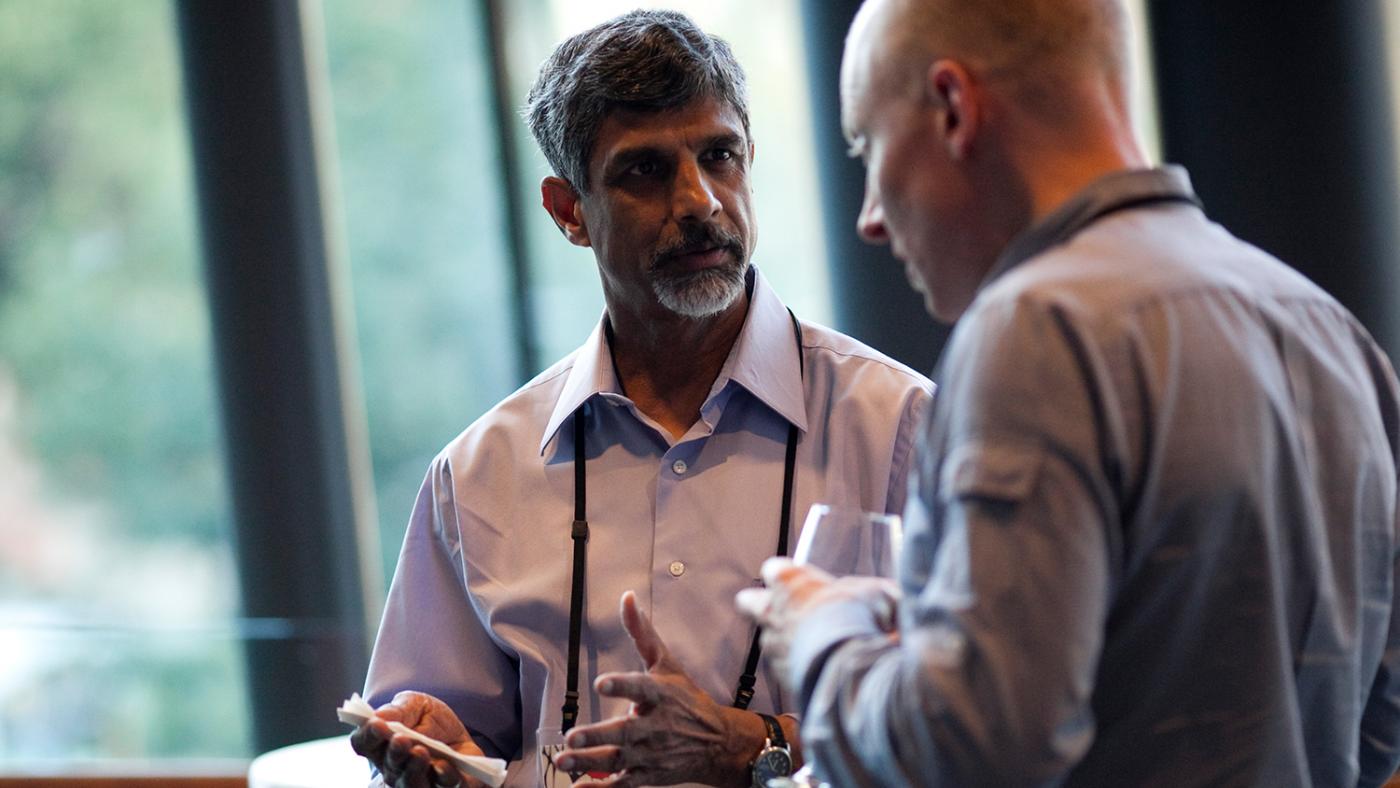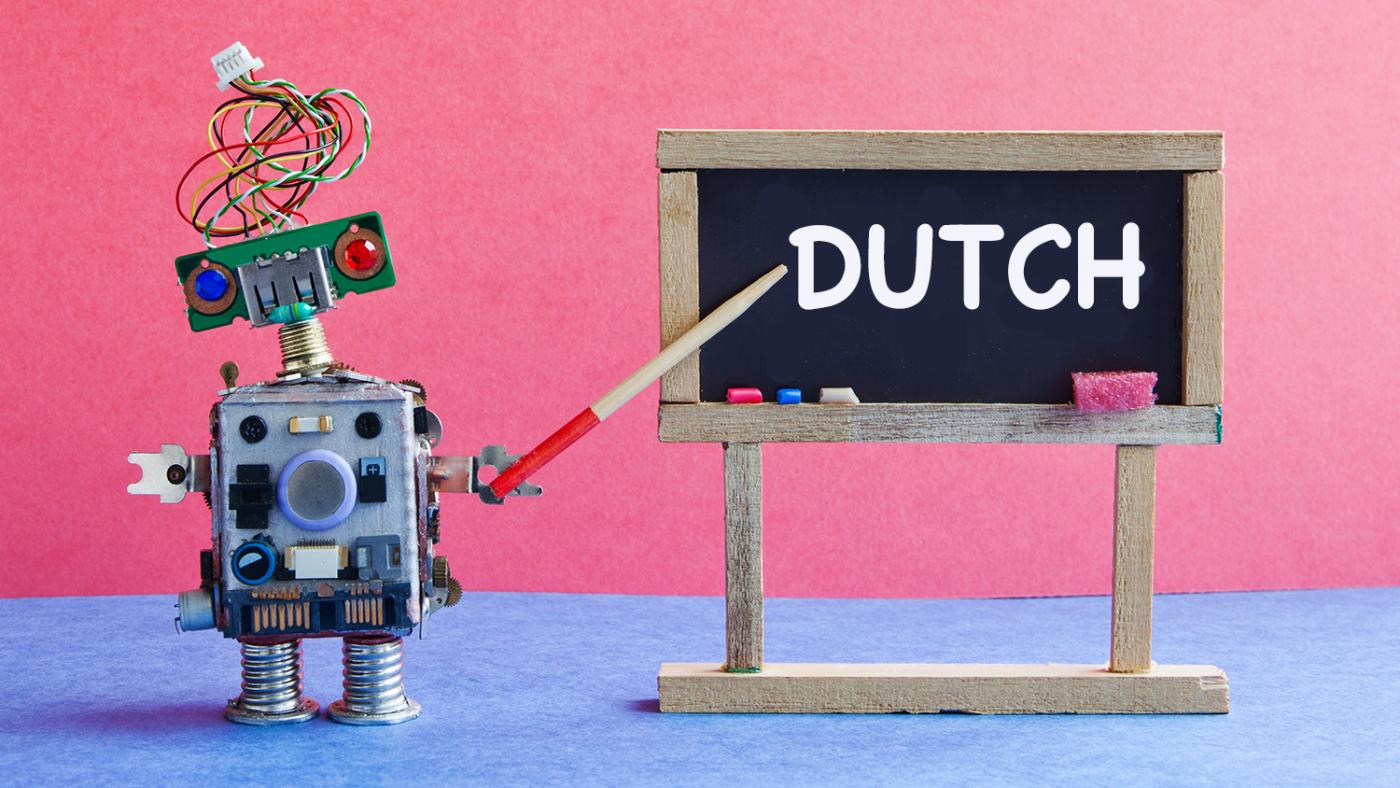Lost in translation: sharing the workspace with the Dutchies
'They immediately switch back to Dutch'

It’s a rather dreary Monday afternoon when professor Hajo Reijers opens a workshop titled Working with the Dutchies with a warm welcome. In typical Dutch fashion, this is a "bring your own lunch" event, killing two birds with one stone. However, there are practically no edible things on the table, not even a homemade broodje gezond ("healthy sandwich," a Dutch recipe with ham, cheese, a boiled egg and raw vegetables, Ed). But then again, the people gathering in room 2.09 at the Buys Ballow building aren’t Dutch. Most of them are international employees sacrificing their lunch breaks to learn all about Dutch folks. Are they the only ones who sometimes feel like they can't figure these people out?
Reijers, born and raised in the Netherlands, starts with an anecdote about his Indonesian mother, who was invited for tea shortly after she arrived in the country. As is customary in the Netherlands, she was offered a cookie to go with the tea. “Polite as my mother was”, Reijers said, “she kindly turned down the cookie. The hostess then closed the cookie jar and put it away, leaving my mum in astonishment.” A soft chuckle resonates among the audience.
In Indonesia, as in other Asian countries, it is a convention to turn down something three times before accepting it. Dutch people are much more straightforward and their preferred way of communication is brief and to the point. They’re not good at formalities, let alone at picking up indirect signals. You can imagine that, because of this, things sometimes can get a little lost in translation. An omission that cost Reijers mum a cookie.
For the PhD candidate Linge Li, this is a recognisable scenario. In China, where she’s from, it is very common to think carefully before you say something. “Dutch people don't beat around the bush and this difference can be observed between Dutch students and foreign students. If a Dutch student has a question, they will send an e-mail consisting of two sentences. A foreign student, on the other hand, will write three paragraphs with an introduction, question, and conclusion. Dutch students are also more verbal: they just speak out whatever comes to their minds, whereas foreign students tend to think for a bit longer or not even open their mouths at all.”’
Li has no trouble with the Dutch directness. “On the contrary, I wish foreign students acted the same way. It’s a sign of freedom. But there’s a downside to it. Sometimes I hear or see Dutch students make a mistake that could have easily been prevented had they thought about it a bit longer. Their directness can also be confused with rudeness, which is a pity.”
This doesn’t just apply to students. DUB’s diversity research shows that foreign employees sometimes find it difficult to work with Dutch colleagues, who come across as rude, thoughtless or even aggressive. In addition, it is not unusual for foreign employees to feel left out due to not having enough understanding of the Dutch language.

Utrecht University is a bilingual university in which Dutch and English coexist. One in seven students has an international background: 5,500 in total. If we're to count PhD candidates as well, the university has approximately 1,000 international employees. “We want to be a diverse and inclusive university,” says Bart van de Laar, Project Manager of International Affairs. “But, at the same time, it is anchored in the Dutch community with a legal duty to care for Dutch as an academic language. Our language policy plan aims to provide guidance regarding the language to be used, however but this doesn’t always proceed uniformly in practice,” he admits.
That's another thing Li recognises. “The standard ICT installation at the university uses English,” she explains, “but the software you need to install, like your e-mail, is in Dutch. An invitation to an event is in Dutch but the event itself turns out to be in English. In many buildings, the signage is in Dutch, which can be pretty annoying for foreign employees.”
Van de Laar acknowledges it. “International employees expect and may expect that they will be able to find their way around but this creates an organisational challenge. What do you do with a gathering when there’s no common language? Should you hire an interpreter? Should you hand out flyers with translations? Should you split it into two sessions and miss different perspectives as a result? Many solutions come with disadvantages.”
According to the language policy of the university, academic staff active in Dutch-taught education should speak Dutch at C1 level or higher. It is up to each faculty to define how much time the employee will have to achieve that level. “So, in practice, things differ both in terms of needs and approach,” Van de Laar explains. “Learning Dutch is often asked upon hiring but there isn’t always a clear follow-up. That’s why we stimulate all international employees to learn Dutch, regardless of the language requirements. After all, that always helps you find your way around faster and feel at home inside and outside the university.”
In addition, Van de Laar believes that Dutch-speaking employees should be aware that not everyone speaks Dutch and keep that in mind when interacting informally. "What language do you use during water cooler talk after coming from an English-speaking session with your colleagues? We Dutchies tend to switch back to Dutch quite quickly. Ultimately, you want everyone to participate and feel at home, and that’s also in the little things. We have a joint responsibility in this," according to Van de Laar.
So, learning the Dutch language is desirable. But is it worth the investment? Li first came to Leiden for her Master's in 2016 but she didn’t start learning Dutch until she moved to Utrecht for her PhD. That was the tipping point for her. “From that moment on, I understood the added value of learning Dutch. As soon as you start to teach or follow a PhD track, you need Dutch to be able to network while having drinks and participate in the information gatherings at the faculty. Not to mention it’s nice to be able to understand Dutch when you find yourself in the middle of a group of chatting students,” says Li, who’s also a member of the University Council, with a laugh.
Assistant Professor Serena di Palma agrees. She is from Italy and came to the Netherlands for her PhD. “Back in those days, everything was international. I didn’t need to learn Dutch. But, later, when I came back to the university for a permanent position, I had to start learning Dutch. In the beginning, I would make mistakes and my colleagues would switch back to English whenever they saw me struggling. But they didn’t do it to be mean. Now, if they do that, I just switch back to Dutch myself.” She adds: “You have to be willing to put in the effort today and not wait until tomorrow.”
Reijers has the same point of view. “I understand that learning a new language is a considerable investment when you’re living from one two-year contract to another. But studies are continued and contracts are prolonged and, next thing you know, you're eight years in the country and still don't speak a word of Dutch. That happens more often than you’d think and it's a waste because learning the language helps you to integrate and feel accepted.”
Language policy and the future of internationalisation remain hot topics at Utrecht University. "We hear different things," Van de Laar acknowledges. "Some foreign employees are satisfied with the attention given to bilingualism in our organisation, while others are disappointed with the level of importance given to Dutch. Some are happy about the free Dutch courses while others wish UU would offer more. We don't have the answers to everything yet but, then again, we don't have to. As long as we talk about things." Li agrees. "Sixty years ago, the Netherlands embraced foreign students and staff in their universities. The language was never an issue. Like New York, the Netherlands became a kind of 'melting pot'. Let's keep encouraging that above all."
So what about all those weird Dutch habits? “Reverse it,” suggest Reijers. “Something you find annoying can also be used to your advantage. Use the Dutch directness to speak up and to ask for feedback yourself. Or try to teach students the benefits of a more formal way of behaving. It will certainly come in handy with international contacts.”